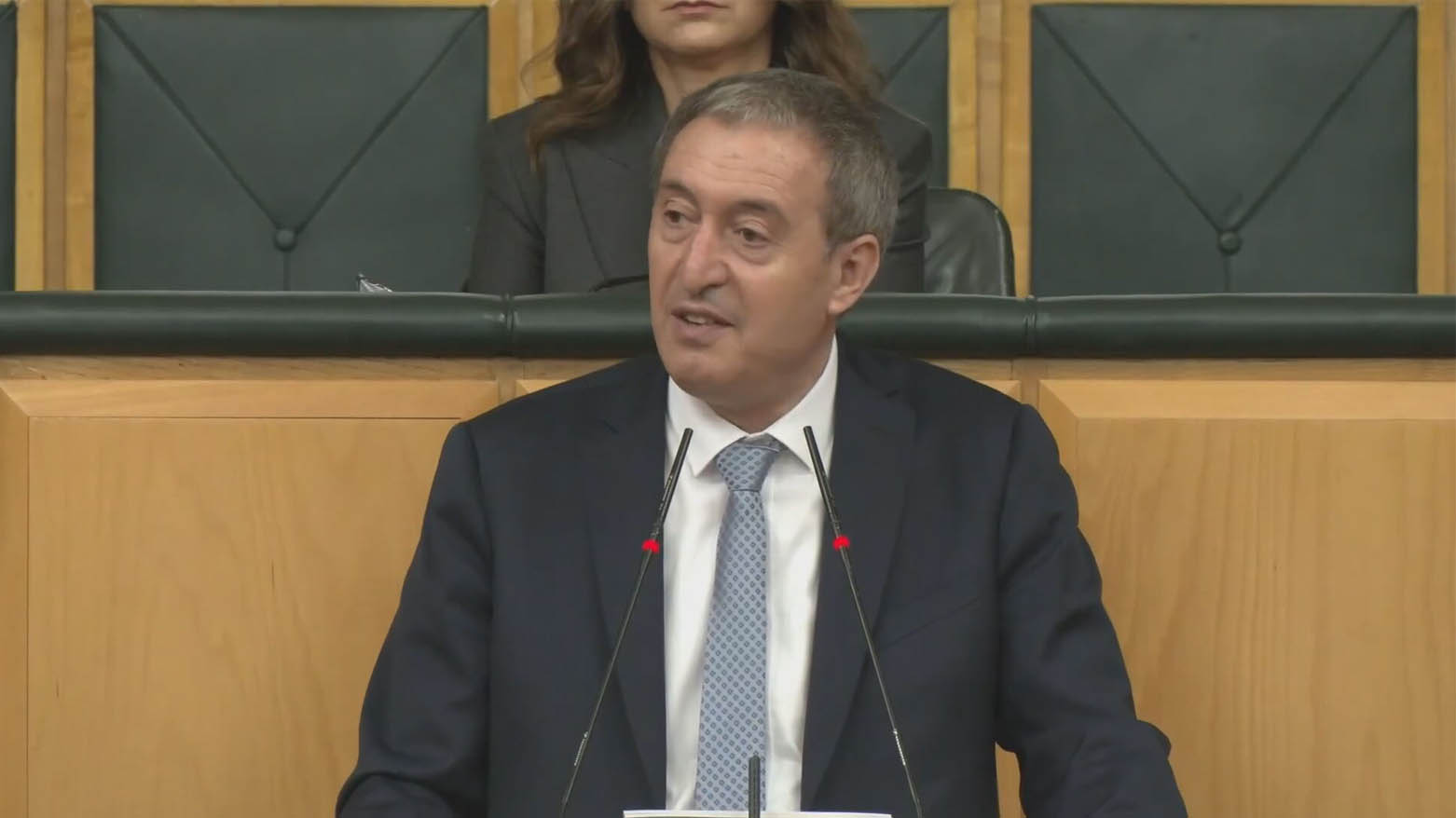DEM Party's Bakırhan Calls for Peace Commission to Visit Ocalan
DEM Party Co-chair Tuncer Bakırhan called for Türkiye's Peace Commission to visit imprisoned PKK leader Abdullah Ocalan, while welcoming MHP leader Devlet Bahceli's unexpected support for releasing former HDP leader Selahattin Demirtas.

Erbil (Kurdistan 24) – Tuncer Bakırhan, Co-Chair of Türkiye’s pro-Kurdish Democracy and Equality Party (DEM Party), said Tuesday that the country’s Peace Commission must visit Abdullah Ocalan, the imprisoned leader of the Kurdistan Workers’ Party (PKK), as part of renewed efforts to advance national reconciliation.
Speaking on Tuesday, Bakırhan welcomed recent remarks by Devlet Bahceli, leader of the nationalist MHP party and a close ally of President Recep Tayyip Erdoğan, who unexpectedly signaled support for the release of Selahattin Demirtas, the long-imprisoned former co-chair of the HDP (now DEM Party).
Bakırhan said, “We thank Mr. Bahceli for his words. The release of Demirtas would be a positive step for Türkiye. It is time for Demirtas and all those detained in connection with the Kobane case to be freed.”
He added that the Imralı delegation, which represents Ocalan, has officially requested that the government’s Peace Commission visit the island prison to meet him.
The comments came as supporters of Selahattin Demirtas, who has been imprisoned since November 4, 2016, regained hope for his release following a final and binding ruling by the European Court of Human Rights (ECHR), which found that his detention violated international law and ordered his immediate release.
Demirtas’s lawyers and the parliamentary opposition swiftly called for the ruling’s implementation. His legal team submitted the necessary court documents, with attorney Mahsuni Karaman stating that Turkish judicial authorities “must either release him immediately or review the case on its merits.”
The ECHR’s decision, issued from Strasbourg, reaffirms a series of earlier rulings that Ankara has long ignored. It has reignited debates in Türkiye over judicial independence, political imprisonment, and the government’s handling of Kurdish political movements.
In a rare display of unity, Türkiye’s main opposition party, the Republican People’s Party (CHP), has called for Demirtas’s immediate release.
“The ECHR decision is final and must be implemented without delay,” CHP lawmaker Sezgin Tanrıkulu wrote on the social media platform X.
The DEM Party echoed this sentiment, urging the government to release Demirtas and Figen Yüksekdağ, his former co-chair who is serving a similar sentence.
The case has drawn global attention due to Demirtah’s enduring influence and charisma. Once a rising star in Turkish politics, he was sentenced to 42 years in prison in 2019 for his alleged role in the 2014 Kobane protests, which erupted over Ankara’s response to the Islamic State’s assault on the Syrian Kurdish town.
The renewed public discussion around Demirtas’s fate coincides with progress in the peace process between Ankara and the PKK, which formally announced the dissolution of its armed wing earlier this year at Ocalan’s request.
Observers see the ECHR ruling, combined with Bahceli’s unexpected statement and Bakırhan’s appeal for dialogue, as potentially opening a narrow but significant window for reviving the stalled peace process.
“The release of Demirtas would not only serve justice,” Bakırhan said, “but would also mark the beginning of a new chapter for peace and democracy in Türkiye.”
Selahattin Demirtas, now 52, was arrested on Nov. 4, 2016, at the height of his political influence as co-chair of the Peoples’ Democratic Party (HDP). Known for expanding the party’s appeal beyond its Kurdish base, he became a symbol of resistance and political pluralism.
His imprisonment has strained Türkiye’s relations with Western governments, many of which consider him a political prisoner.
The convergence of his nine-year imprisonment anniversary and the ECHR’s final ruling has placed Türkiye’s justice system at a crossroads.
For Demirtas’s supporters, and for Bakırhan’s DEM Party, the coming days may prove decisive—either ushering in a long-awaited moment of justice, or reaffirming the entrenched political divisions that have defined the Kurdish question for decades.